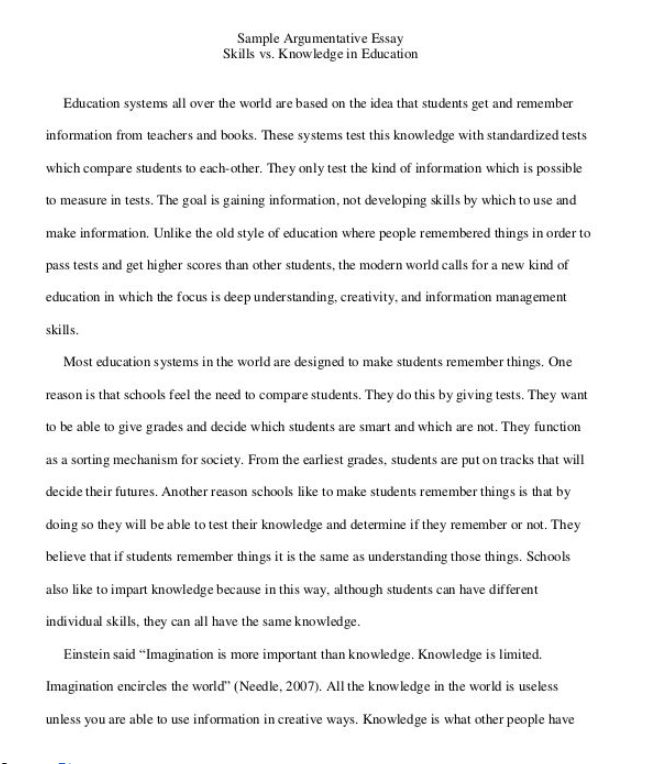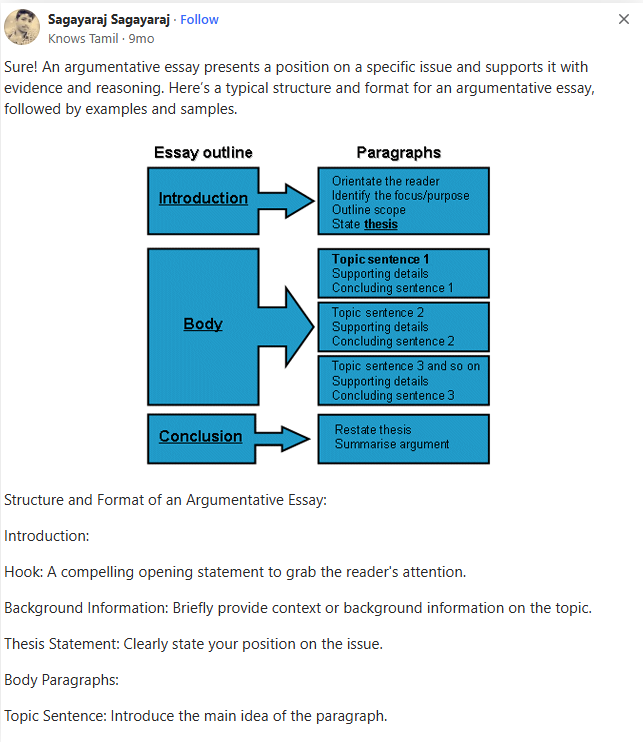Argumentative essays are often written to express views on social, educational, or current issues. They are commonly used in schools, colleges, competitive exams, and professional writing tasks to develop critical thinking.
Even though they are argumentative essays, the tone should always be formal, logical, and respectful. Anyone can start writing these essays with practice and proper research.
This guide will teach you the purpose of argumentative essays, their types, examples, and how to write them effectively.
What Is The Purpose of Argumentative Essays?
The main purpose of an argumentative essay is to convince the reader to agree with your opinion using logical reasons, facts, and evidence. It improves critical thinking and writing skills.
You can also learn to structure essays better through various essay writing courses. An argumentative essay presents facts and opinions, while a persuasive essay focuses more on emotions to convince readers. Students often write these essays to present research, discuss topics, or win debates.
Popular Argumentative Essay Examples
Learning from popular argumentative essay examples is a smart way to improve writing skills. It is also worth investing in professional writing services to get expert guidance and error-free essays for academic success.
| Type | What it Focuses On | Example Topics |
|---|---|---|
| Classical | One-sided argument | “Should Plastic Bags Be Banned?” |
| Rogerian | Balanced argument | “Is Online Learning Better Than Traditional?” |
| Toulmin | Evidence-based argument | “Does Social Media Harm Mental Health?” |
Now, let’s understand how Classical, Rogerian, and Toulmin argumentative essays work and how you can effectively apply them in your writing.
1. Classical
The Classical argumentative essay is one of the oldest and most straightforward styles of argument writing.

It focuses on presenting a clear thesis statement, followed by strong evidence and reasoning to support one side of the argument.
Students need to include an introduction, background information, main arguments, counterarguments with refutation, and a conclusion. This style is useful when the writer wants to convince the audience directly and confidently.
2. Rogerian
Rogerian argumentative essays focus on building mutual understanding between two sides of an argument. Instead of attacking the opposing view, this essay respects and acknowledges different opinions.
It begins with introducing the issue, explaining opposing views fairly, presenting the writer’s position, and finally suggesting a compromise or solution.
This type of essay is useful when writing about sensitive topics like politics or social issues, where balance and respect matter more.
3. Toulmin
Toulmin’s argumentative essays are based on evidence and logical reasoning. They focus on breaking down an argument into six parts.
They are claim, data (evidence), warrant (connection between claim and data), backing (support), qualifier (limitation), and rebuttal (counterarguments).
This structure helps in writing fact-based essays and research-heavy topics. It teaches students how to build arguments with clarity and proof. It is also useful for learning ways to write research proposals for academic or professional writing.
Structure Of An Argumentative Essay
To write an impactful argumentative essay, it is important to follow a proper structure that helps to organize thoughts clearly and present arguments effectively to the readers.

1. Introduction: The introduction provides background information about the topic, grabs the reader’s attention, and sets the tone for the essay.
2. Thesis Statement: The thesis statement presents the writer’s main argument or claim in one or two sentences, clearly directing the entire essay.
3. Body Paragraphs (Supporting Evidence): Body paragraphs present the main points with supporting evidence such as facts, examples, statistics, or expert opinions. This makes the argument stronger and more convincing for the readers.
4. Counter Arguments: This section acknowledges opposing viewpoints and refutes them logically. This helps readers understand why the writer’s position remains valid and well-supported.
5. Conclusion: The conclusion summarizes the main arguments, restates the thesis, and provides a strong closing statement that leaves a lasting impression on the readers.
In addition to this essay structure, explore 124 project topics that are best for history students, which you can consider for your next academic project.
Pro Tips To Make An Argumentative Essay Stand Out
To write an argumentative essay that truly leaves an impact, you need to follow smart writing techniques that highlight your ideas effectively and clearly.
- Choose a debatable topic that interests both you and your readers for better engagement and stronger arguments.
- Research from credible sources to support your claims and provide authentic evidence to make your essay more convincing.
- Maintain a clear structure with an introduction, thesis statement, body paragraphs, counter-arguments, and a firm conclusion.
- Use a formal and balanced tone to present your points without sounding aggressive or biased in your arguments.
- Edit and proofread your essay thoroughly to eliminate grammatical errors and improve clarity and sentence flow.
- Enroll in online writing courses and grab exclusive offers through Coursera discounts to sharpen your essay writing skills professionally.
Common Mistakes To Avoid
Many students make common mistakes while writing argumentative essays that can weaken their overall impact.
- Weak thesis statement: A weak thesis fails to give clear direction to the essay.
- Lack of evidence or unreliable sources: Your arguments lose credibility and strength without trusted sources.
- Ignoring counterarguments: Ignoring opposing views shows bias and weakens your argument’s balance.
- Writing like an emotional diary: Emotional writing reduces professionalism and distracts readers from facts.
- Overcomplicating language: Simple and clear language always communicates ideas more effectively than jargon.
Also Read:
Conclusion: Explore 3 Argumentative Essay Examples
Argumentative essays help students and writers express their opinions with facts, logic, and structure. Choose the right type, from Classical, Rogerian, or Toulmin.
It mainly depends on how you want to present your argument. Understand the structure and common mistakes that will guide you to create impactful essays to capture attention and stay relevant.
Anyone can craft a powerful argumentative essay with the right tone, evidence, and clarity. Start practicing your skills, research deeply, and focus on your thesis to make your writing stand out.
FAQs
Argumentative essay topics include social media impact, climate change, online education benefits, technology in classrooms, environmental pollution, animal testing, and gender equality discussions.
Popular tools include Grammarly for grammar checks, Canva for presentations, Citation Machine for references, and Outliner tools for essay structure planning.
Begin with a strong hook, background information, and a clear thesis statement that presents your opinion and prepares readers for supporting evidence and counterarguments.
Argumentative essays are useful for both college and high school students because they improve critical thinking, research ability, logical reasoning, and effective communication skills.
Summarize key points, restate your thesis in a new way, and leave readers with a thought-provoking statement that encourages reflection or action after reading.
Many educational websites, blogs, and online learning platforms offer free argumentative essay samples that help improve writing style, structure understanding, and idea development skills.







